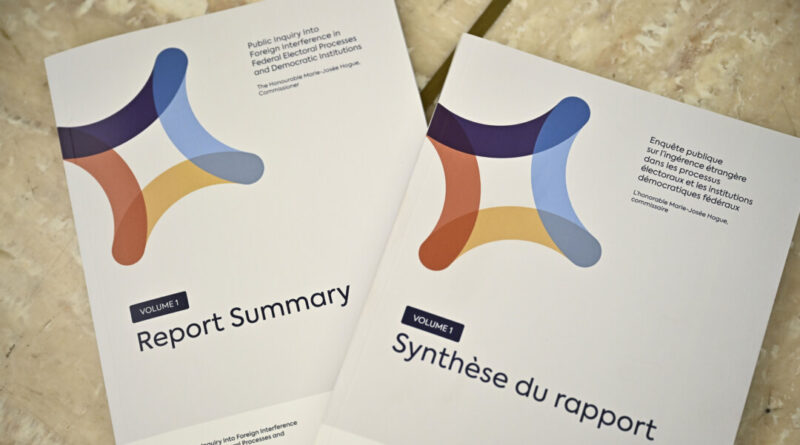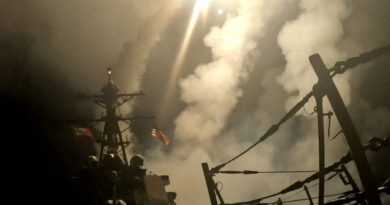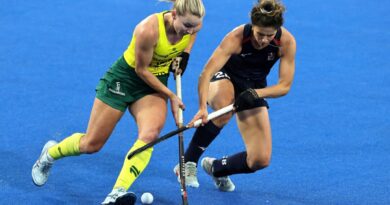Commentary
Canada’s Parliament has “no traitors.” That’s the conclusion trumpeted in the final report of the Hogue
inquiry into election meddling by China and other foreign governments. The report reveals the opposite. The gaslighting by foreign governments that successfully changed the outcomes of Canada’s elections did double duty by blinding official inquiries tasked with bringing evidence to light.
Based on a 16-month investigation and the testimony of more than
150 witnesses, Commissioner Marie-Josée Hogue’s
860-page report delivered both a yawn and a slap in the face to Canadians who first learned through intelligence leaks to the media that the country’s democracy and parliamentary integrity was under threat. Those leaks turned on a searchlight. Hogue’s inquiry dimmed the switch.
Underwhelmingly, the final report declared democracy had been tested and “
remained robust.” There was no evidence of “
traitors” in Parliament plotting with foreign states against Canada’s interest, she said. While instances of foreign interference may have influenced
nomination races or riding elections, Justice Hogue said it had not impacted the overall outcome of the 2019 and 2021 federal elections. She then moved on to some harsh notes while gutting their potency.
After singling out the government’s slow response to “
troubling” attempts of foreign interference, Hogue attributed the failings to the vaguery of systemic flaws such as poor communication and
lack of diligence. No civil servant or politician was to blame. No one acted with intent or turned a blind eye to interference from foreign actors to win seats or an election for the governing Liberals. No heads should roll.
And, crucially, for Canada’s coming election, Justice Hogue downplayed the bombshell in the June 2024 report of the National Security and Intelligence Committee of Parliamentarians (NSICOP) that some parliamentarians had
wittingly and unwittingly aided foreign governments in influencing Canadian parliamentary business. Instead, Hogue merely alluded to “
problematic relationships with foreign officials, exercising poor judgment, behaving naively and perhaps displaying questionable ethics.”
Any interference “remains marginal and largely ineffective,” she reassured. Nothing would be gained by letting the voting public know the identity of compromised MPs and Senators or how exactly they put a foreign country’s interests over Canada’s, particularly with a federal election looming. Nothing to see here and nothing to ask, Justice Hogue implied while declining to take any questions.
In their assessment of the report’s findings, former CSIS directors Ward Elcock and Richard Fadden
cite the lack of a national security culture to address intelligence reports and threats effectively: “You need a prime minister who is interested over time. I don’t think we’ve had that for a while now.”
The prime minister and his MPs
bragged repeatedly about the creation of security bodies such as NSICOP, the National Security and Intelligence Review Agency, and others, to protect Canada’s national security. In practice, however, these bodies did little to counter foreign election interference effectively. As noted in an
earlier opinion piece I co-authored with law professor Bruce Pardy, executive director of
Rights Probe, these bodies “bar evidence of foreign election interference from public view and Parliament, preventing the government from being held to account.”
Not surprisingly, those in Canada who are especially targeted by China view the report’s diagnosis and
51 recommendations to improve detection, reporting, and transparency as a licence for continued interference.
Friends of Hong Kong, a diaspora group that has been monitored, intimidated, and harassed by China, believes the Hogue report reinforces a pattern of “
willful blindness.” It takes issue with Hogue’s assessment that parliamentarians with problematic relationships to foreign officials did so mainly out of
poor judgment and naivety, a view that it says
demonstrates “a lack of understanding of the extent and threat that such parliamentarians pose to Canadian democracy.” While Hogue admitted transnational repression represented a “
genuine scourge” to the democratic process in Canada, Friends of Hong Kong worry the commissioner’s approach “
will only condone more of such conduct.”
The Hogue Inquiry was called after leaks by CSIS and reports by Global News, The Globe and Mail, and The Epoch Times led to public demands to shed light on the many intrigues compromising confidence in Canada’s electoral system. Rather than shining a light under every rock, the Hogue commission only cast a darker shadow over the integrity of Canada’s electoral systems.
If the Foreign Interference Commission revealed anything, it’s that foreign influence works.
Views expressed in this article are opinions of the author and do not necessarily reflect the views of The Epoch Times.



